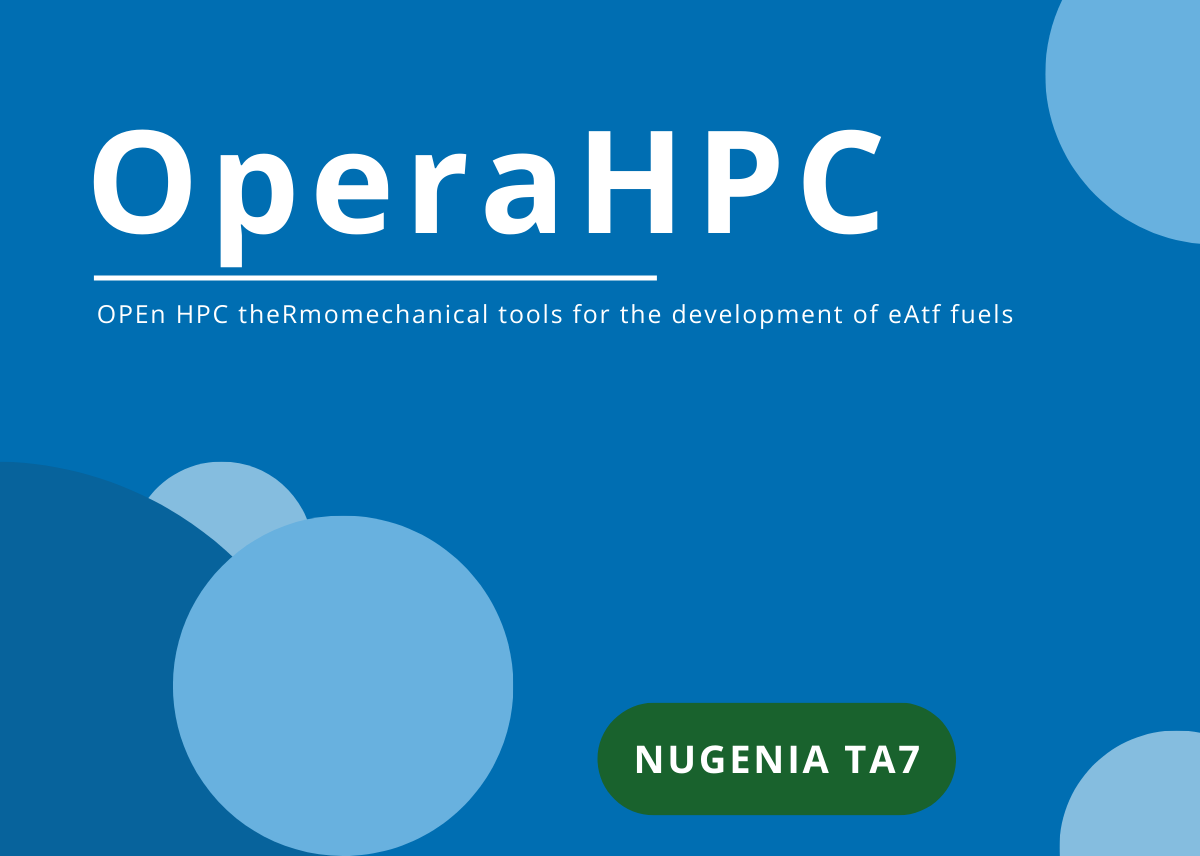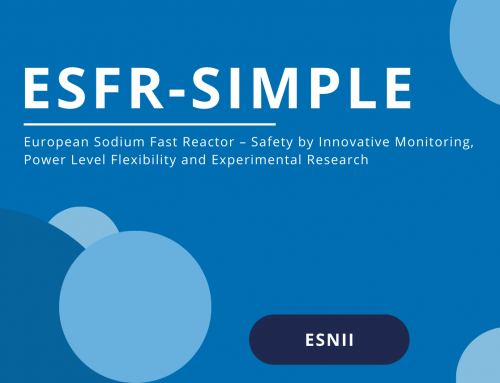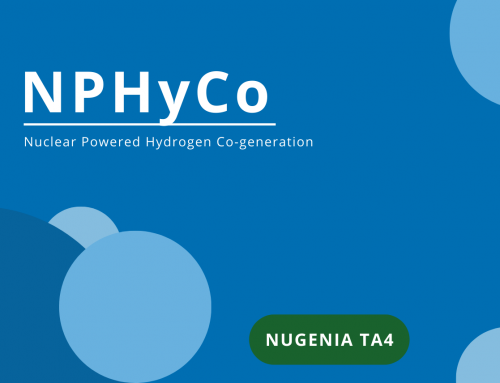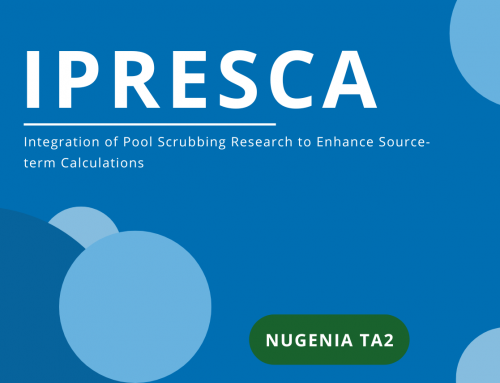
OBJECTIVES
- Development and improvement of High Performance Computing simulation tools for fuel element behavior in Gen2&3 nuclear reactors
- Integration of this advanced simulation approach in the industrial framework
- Education and Training focused on the link between basic research, open source development and industrial applications

EXPECTED IMPACT
- Basic research results with a multi-scale characterization of fuel mechanical behavior based on experiments coupling with simulation
- 3D simulation open source codes for the fuel element behavior at engineering and microstructure scales
- Qualification of 3D codes with Verification, Validation and Uncertainties Analysis
- Improved industrial model based on Machine Learning and AI methods
- Fuel safety analysis with advanced tools for Gen 2&3 reactors including enhanced Accident Tolerant Fuel concepts.
- Open publications, Workshops, Schools, MOOC dedicated to fuel performance codes

HIGHLIGHTS
- Experimental device for creep tests on irradiated fuel samples,
- Physical data for fuel mechanical properties
- Improved physics-based mechanical laws for fuel and cladding
- Validated open source computational tools for thermomechanical simulation :
- MMM mesoscale (microstructure scale) code
- OFFBEAT engineering scale simulation code (fuel element)
- Prototype tool (meshless SPH method)
- Improved models for industrial Fuel Performance Codes
- Safety assessment for operating transients and DBA (state of the art fuel and eATF).

PARTNERS
CEA, CIEMAT, EDF, ENEA, FRAMATOME, LEI, NINE, POLIMI, SINTEC, UJV REZ, UNIPI, VTT, KTH, JRC, PSI, EPFL, BANGOR, NNL

DURATION
Start: November 1st 2022 – Duration 54 months

CONTACT

FOR DOWNLOAD

Funded by the European Union




